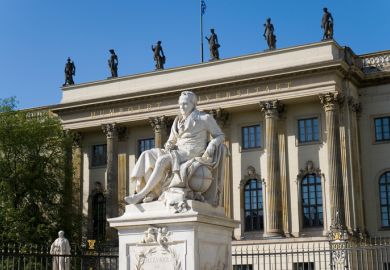David Runciman begins Political Hypocrisy with a challenge to writers such as Judith Shklar who believe that hypocrisy is an overrated vice. Certainly there is intuitive evidence that Shklar is right: journalists increasingly behave as though what matters is not the wisdom of the political issue under consideration so much as the exposure of inconsistency on the part of the protagonist.
The author is not satisfied with either those who believe hypocrisy to be the highest stage of immorality or those who are overly forgiving. In this sense, the book is an exploration into whether it is possible to steer a course between the hypocrisies that are unavoidable and those that are intolerable. Reflecting his disciplinary background as a political theorist, Runciman turns to the history of ideas as his guide - not to Machiavelli or Nietzsche as one might expect, but rather to Hobbes, Mandeville, Franklin, Jefferson, Bentham, Sidgwick and Orwell. These are "the great anti-hypocrites of the liberal tradition".
In common with most other moral categories, hypocrisy takes many forms. It can refer to "claims to a consistency that one cannot sustain, claims to a loyalty that one does not possess, claims to an identity that one does not hold". Most concretely of all, a hypocrite is revealed at the moment when an individual's public statements of principle are contradicted by his or her private words and deeds. Such a sentiment is a direct descendant of the original Greek word "hypokrisis", which meant "the playing of a part". No wonder that the fallen politicians of our time have been such consummate political actors.
What do we learn about hypocrisy from the history of political thought? From Hobbes, the need for a sovereign power to provide order was the central moral fact, not the character of the political rule (or, in contemporary language, whether a state was democratic or authoritarian). A double standard is in-built into the Hobbesian world of politics: sovereigns must act, citizens must obey. "The fact of their power", argues Runciman, "serves to separate them out entirely from their subjects."
Later in the book there is a rich discussion of Victorian hypocrisy. Henry Sidgwick believed it was important to recognise the limits of sincerity in judging the right thing to do. He argued that the cultivation of concealment was particularly important in international relations, especially when empires were called upon "to fight wars for the sake of the greater good". In such cases, the highest standards of international morality would be compromised.
Sound familiar? At the height of Nato's bombing of the Federal Republic of Yugoslavia, Tony Blair argued that in today's world our military fights wars "for values not for territory". Fighting for values is not itself hypocritical unless the warrior-leader is inconsistent in her or his advocacy of intervention or proclaims a public casus belli that hides the real motivation, be it oil, the strategic control of territory or simply the aggrandisement of power.
Parallels with today's world are discussed in detail towards the end of the book. Runciman provides a litany of examples of inconsistency and deception: Martin McGuinness sitting side by side with Ian Paisley in the Northern Irish Assembly, Al Gore criss-crossing the globe in jet airliners to promote his film An Inconvenient Truth, or Paul Wolfowitz using his influence as president of the World Bank to get tough on corruption in developing countries while involving himself directly in a generous promotion package for his girlfriend who was an employee of the bank.
Is there a way out? Runciman thinks not. To try to escape from the hypocrisy of modern politics is a delusion. We ought not to think, as heroic liberals do, that sincerity will always prevail over deception and double-dealing. Instead, we are left with "a choice between different kinds of lies and different kinds of truth".
In recent times, nobody captured these gradations better than George Orwell. When the pigs in Animal Farm change the commandment from "no animal shall drink alcohol" to "no animal shall drink alcohol to excess", the reader is led to believe that social order has been compromised by this and other ill-defined exceptions. Our social world is of course riddled with exceptions, both tacit and explicit. This neither reveals the emptiness of a liberal order nor does it render it the equivalent of an authoritarian system founded on fear and cruelty.
Political Hypocrisy is a deep and thought-provoking work. On the negative side, some readers might have expected a more systematic analysis of the grounds on which exceptions to "the truth, the whole truth, and nothing but the truth" might be acceptable. But any such probing on my part can easily be dismissed for the reason that, in Runciman's words, "when it comes to hypocrisy, book reviewing has it all".
Political Hypocrisy: The Mask of Power, from Hobbes to Orwell and Beyond
By David Runciman
Princeton University Press
286pp
£17.95
ISBN 9780691129310
Published 1 May 2008
Register to continue
Why register?
- Registration is free and only takes a moment
- Once registered, you can read 3 articles a month
- Sign up for our newsletter
Subscribe
Or subscribe for unlimited access to:
- Unlimited access to news, views, insights & reviews
- Digital editions
- Digital access to THE’s university and college rankings analysis
Already registered or a current subscriber?



